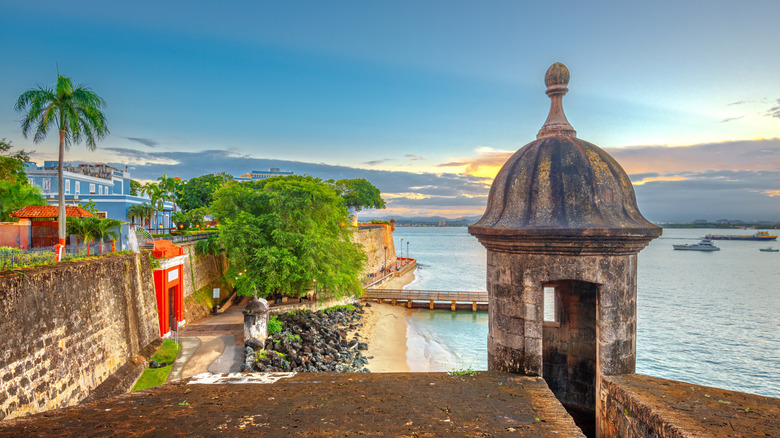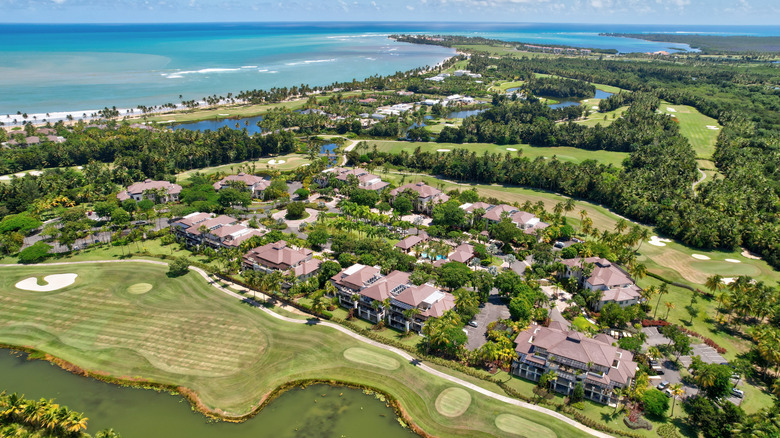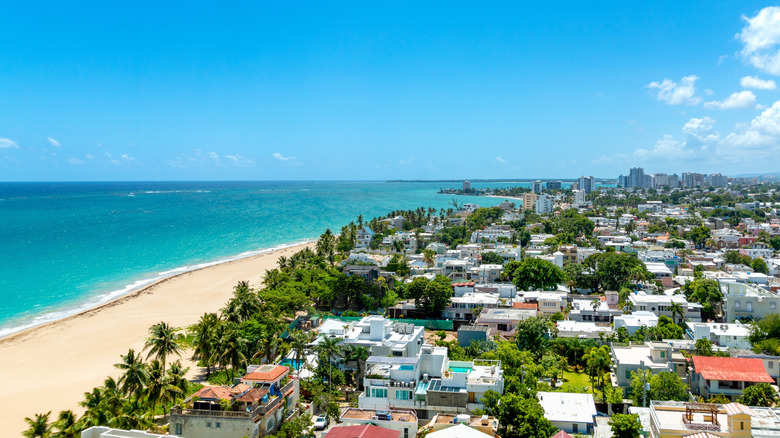You Don't Need A Passport To Retire To This Caribbean Island Where The Dollar Goes A Long Way
Dreaming of retirement? Many of the Caribbean's best retirement destinations offer warm weather, a relaxed way of life, and surprising affordability. But among them, Puerto Rico stands out for American retirees. It delivers the tropical climate, easygoing energy, and beautiful beaches you'd expect, plus a few major advantages. It's one of the few Caribbean islands U.S. citizens can visit without a passport or visa restrictions. At a time when the U.S. passport has slipped out of the world's top 10 most powerful, and long-haul destinations like Dubai or New Zealand can be costly or complicated for retirees on fixed incomes, Puerto Rico offers the simplicity of a domestic move with Caribbean perks. On top of that, U.S. dollars go further here, and various incentives keep taxes low, making it easy to see why Puerto Rico is becoming a desirable destination for American retirees.
Of course, choosing where to spend your golden years involves more than sunshine. Healthcare requires careful consideration, as medical systems can vary widely among Caribbean countries. Property laws also matter. Can foreigners buy homes easily, or are there restrictions and minimum wealth requirements? All this plays into affordability, another big issue, which can differ dramatically from island to island, as outlined in this article from Immigrant Invest.
For the most part, Puerto Rico's cost of living is lower than on the American mainland. My Life Elsewhere estimates overall expenses in Puerto Rico to be around 21% below comparable U.S. cities. Culturally, the island blends Latin-Caribbean vibrancy — food, music, and dance — with familiar U.S.-style infrastructure, from the use of the U.S. dollar to banking systems and legal protections.
Advantages of retiring in the island of Puerto Rico over the U.S. mainland
Puerto Rico is a U.S. territory and commonwealth located in the northeastern Caribbean, east of the Dominican Republic and west of the Virgin Islands. It has its own constitution and republican form of government, while remaining under the sovereignty of the United States. Federal laws apply and the U.S. president serves as head of state.
One appealing factor drawing retirees to Puerto Rico in recent years is its distinct tax framework, known as Act 60, or the Incentives Code. This law offers a 4% corporate tax rate to certain export-service businesses, primarily targeting entrepreneurs, service exporters, and individual investors. Forbes points out that Puerto Rico also allows for a 0% tax on capital gains, interest, dividends, and certain royalties for residents who qualify under the Individual Resident Investor incentives. Locally earned income is subject to Puerto Rico's local income tax system, but is generally exempt from U.S. federal income tax for bona fide residents according to the IRS, though sales tax is 11.5% on most items, one of the highest among U.S. jurisdictions.
Plenty of U.S. states consistently rank high for retirement — from Arizona to Delaware — and often for good reason. But there's something about moving abroad that feels rejuvenating in and of itself. In 2024, researchers at Australia's Edith Cowan University found that travel can improve mental and physical health by encouraging movement, social engagement, and immersion in new environments. Science Daily, which covered the study, noted that researchers aimed to understand how positive travel experiences can help maintain a body's "low entropy" — a poetic way of describing a slower rate of decline.
The Caribbean lifestyle benefits of retiring to Puerto Rico
Financial incentives aside, Puerto Rico offers a lifestyle many retirees find enticing. While strictly 55+ communities are rare, there are plenty of gated developments, condos, and resort-style neighborhoods catering to older adults seeking low-maintenance living. You can choose the laid-back surf town of Rincon, known for its stunning beaches, sunset views, bioluminescent bay, and waterfalls. A popular choice is Old San Juan, the capital city that blends old-world charm with modern amenities, from high-rise condos to top healthcare facilities to restaurants to public transportation and nightlife. It's also a UNESCO World Heritage site. Or there's Ponce, the island's second-largest city, known as "the Pearl of the South," a charming and more affordable option. For those who love staying active, the island boasts nearly 30 golf courses, tennis and pickleball facilities, hiking trails, and endless opportunities for swimming, boating, and water sports.
It's always wise to visit before moving permanently. Retirees note that while the lifestyle and financial incentives are appealing, there are trade-offs, from road conditions and grocery prices to healthcare variability and power outages. Many recommend a trial stay to see if Puerto Rico is the right fit. "Living here is not the same as vacationing here, two very different things," wrote u/stichman72 in a Reddit thread. One retiree who relocated to Puerto Rico agreed, saying they love Puerto Rico, but things like road conditions, grocery prices, and the healthcare system can be challenging. "I love it here," wrote Next_Selection4565. "But it's a big difference from the States." Island life might not be for everyone. But with the right planning, Puerto Rico can offer a unique blend of adventure, culture, and comfort for retirees seeking something beyond the mainland.


